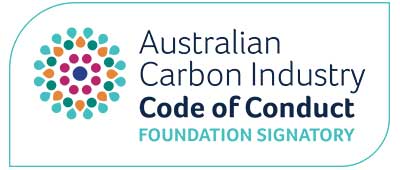Offsets for good?
On 24 October 1988 carbon offsets hit the big time. That was the day that carbon offsets graced the front cover of Time magazine showcasing a tree planting project in Guatemala. Imagine carbon offsets on the front cover of Time now? What has happened since?
I heard this story on an interesting podcast recently on Planet Money. Sheryl Sturges was working at a power company in the US and they were concerned about the impact of climate change from a new power plant. It was the late 1980s. The 1980s!
Sheryl started reading about climate change and had the idea of planting trees to offset the emissions of their coal power plant. She checked it out with scientists who gave it the okay. She had just invented carbon offsets.
The company ended up investing US$2m in a reforestation project in Guatemala. The idea was to plant 52 million trees over 10 years to offset the emissions of the coal plant over its 40 year lifetime.
Anna Whitman from University of British Columbia later studied the project. She didn’t like what she found. It turned out the project created conflicts over land use, landowners wanted to plant fruit trees and food shortages were created. In the end, the project offset about 10% of the coal plant emissions. Anna says this story if often repeated.
Recently in Australia, there have been a number of recent articles dismissing offsets as a diversion from the main game of collective action. Offset schemes allow governments and companies to offshore required reductions, greenwash their consumers and excuse any behaviour change. If the projects are not dodgy, then the offsets are illegitimate because they are like indulgences sold by the church in centuries gone by. Ultimately, “the scale of change that can be achieved by voluntary individual offset schemes is entirely disproportionate to the scale of the problem of global warming”.
There are some deep philosophical questions buried in all of this. They demand serious thinking. In laying this out, I would appear to have built a case against carbon offsets. No?

Cool season burns in Cape York: Is this a legitimate carbon offset?
There are many issues and responses that could be made, but for now, I’ll leave this quick snapshot.
At present, there are currently 17 indigenous controlled savanna burning projects across northern Australia working to reduce the massive late season fires through early season cool burns. The projects work under rigorous methods to a national regulator in a country with sound governance. The projects sold credits as offsets under the carbon price and 11 now have contracts under the Emissions Reduction Fund. The projects promote a range of publics goods: Jobs in remote locations where opportunities are few. Reduction in fire haze. Less stress on biodiversity. Improved traditional connections with country. Improved connections to corporate Australia. Looking after the national estate. Traditional owners are participating in a business, not just handouts. Importantly, these projects offer offsets in real time through less fire, not in the future like forestry projects.
Should all offsets projects be tarred with the same brush because of sweeping arguments? Is there space for maturing climate policy to acknowledge projects with sound rules and integrity which promote public goods?
So how does the podcast end? The journalist offsetting her trip to the Amazon is asked about her opinion of carbon offsets having done the research. “Yes,” she says, “ to buy but also to continue to feel a little bit guilty.”























